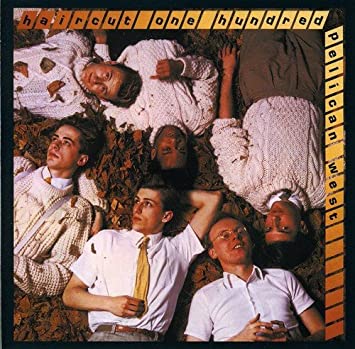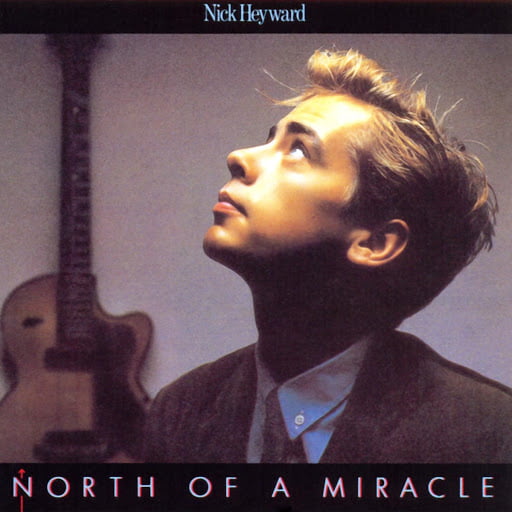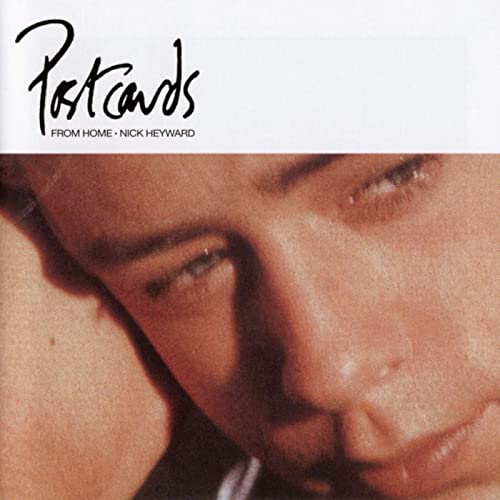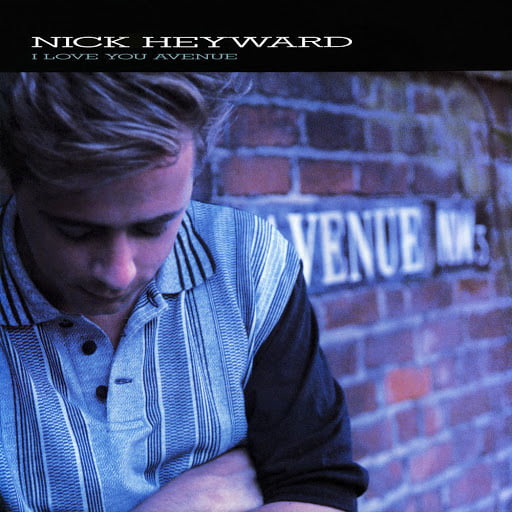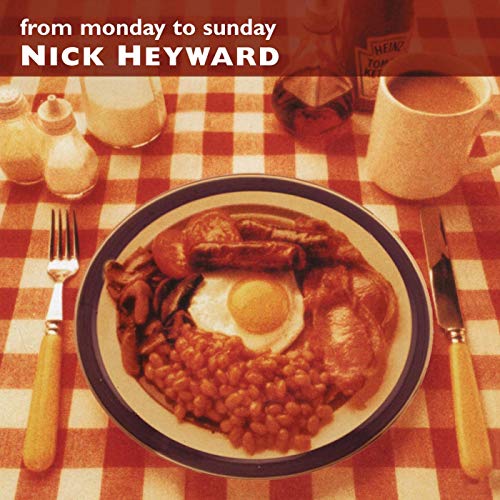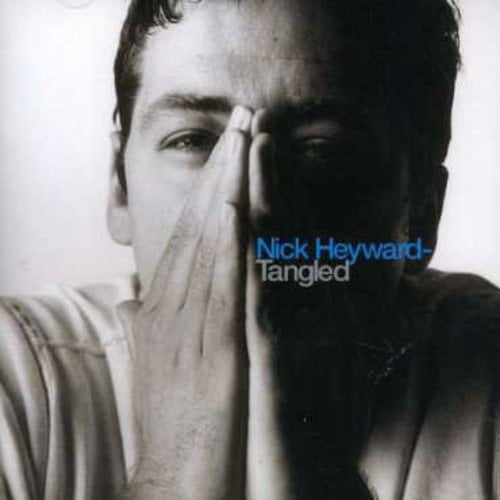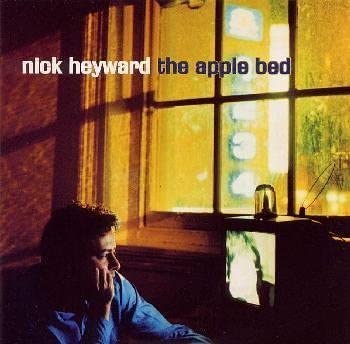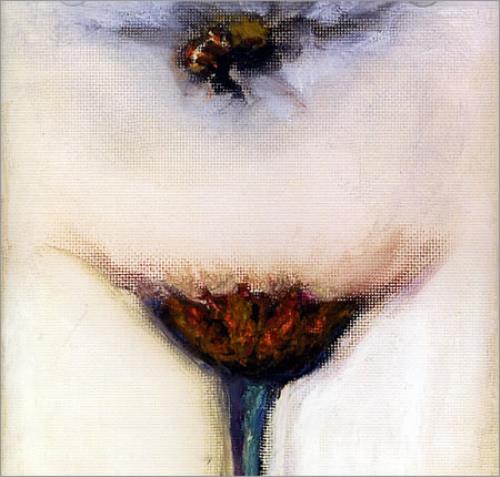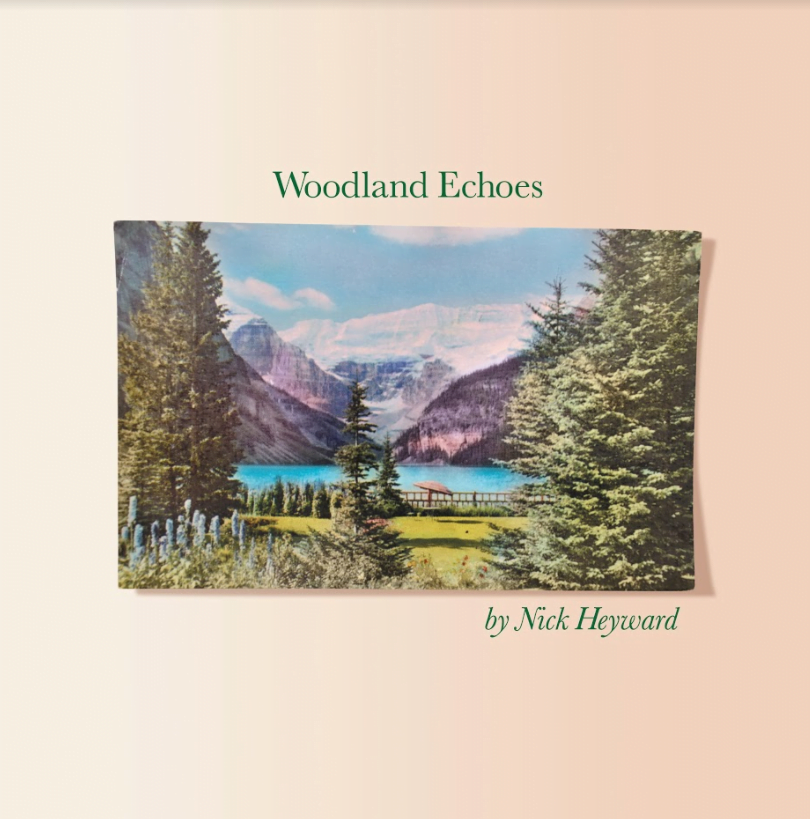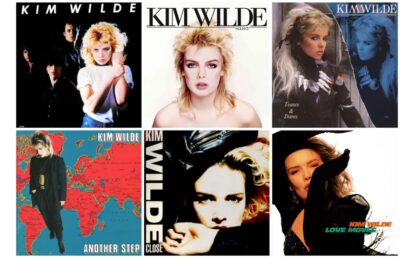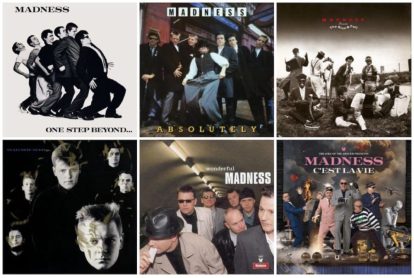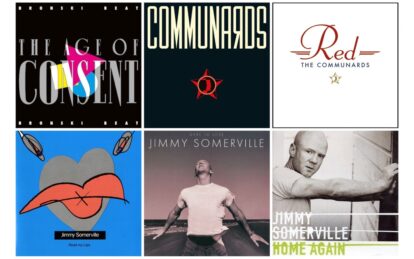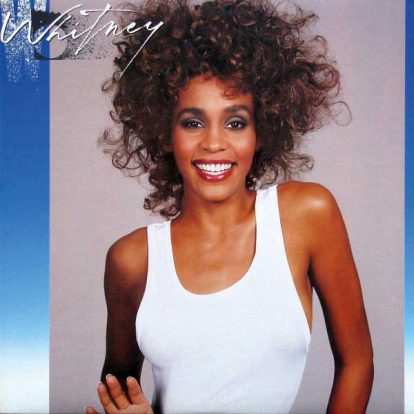
Photo by Steve Ullathorne
Nick Heyward albums have, over the decades, embraced pop, soul, funk and folk… By Steve Harnell
Nick Heyward Albums: Pelican West
Released 1982
Label Arista Records
Producer Bob Sargeant
Just how far would Haircut 100 have gone if Nick Heyward had stayed with the band past this superb debut album? It’s one of the great unanswerable questions of 80s UK pop. With a clean-cut image and the teen idol good looks of their frontman, it’s perfectly reasonable to presume they could have been as big as Wham! or Duran Duran.
Boasting an irresistible brand of dancefloor-friendly pop, Haircut 100 were standard bearers of the burgeoning Brit funk movement that included Level 42, Funkapolitan, and Stimulin.
Whereas Heyward would grow into a fine songwriter in the classicist mould on later work, there’s a feeling on Pelican West that his self-penned material (he wrote everything here with the exception of one track, Love’s Got Me In Triangles, co-penned with bassist Les Nemes), was worked up from more of a jam session ethos.
Producer Bob Sargeant (“our own George Martin” avers Heyward) crafts a coherent sound throughout the record built around the scratchy guitars of Heyward and Graham Jones. Every band member is intrinsic to the audio picture, from Nemes’ funky basslines to the relentless rhythmic urgency of percussionist Marc Fox and classy Motown-influenced drumming of Blair Cunningham. Adding further musical guile was sax and brass player Phil Smith.
The punchy, high-octane Kingsize and cowbell-driven Snow Girl are pure shots of aural Vitamin D; Nemes’ bassline on Lemon Firebrigade is placed high in the mix for maximum impact while its rhythm guitar line recalls Bowie’s Right from Young Americans.
The album only occasional pauses for breath – the chiming Byrdsian guitars of Surprise Me Again are a welcome change of pace amid the breakneck funk.
The musicianship throughout is impressive; Haircut 100 are rarely given the recognition they deserve as a supremely tight funk band. More column inches should have been devoted to their instrumental skills rather than their love of chunky knitwear and boat shoes.
Three killer singles dominate here: the hyperactive itch of Favourite Shirts (Boy Meets Girl), the light and shade of Love Plus One and classic pop songwriting of Fantastic Day.
Heyward credits engineer John Galen – who worked on Bohemian Rhapsody – for crafting the sound of Love Plus One, the track now famous for the lines “Where do we go from here, Is it down to the lake I fear?”
The novelistic lyrics have often puzzled fans. “In my mind, I know exactly what that song means,” explained Heyward. “When I sing ‘Is it down to the lake I fear’ I know what place, what person and everything. But nobody else does.”
Nick Heyward Albums: North Of A Miracle
Released 1983
Label Arista
Producer Geoff Emerick
Crushed by the pressures of being a heart-throb frontman, Heyward was hospitalised with a nervous breakdown after Pelican West and his lack of presence during recording sessions for its follow-up created an irreparable schism between Nick and the rest of the band.
“They were singing and writing and didn’t want to see me,” Heyward told Classic Pop in 2017. “They ganged up and I felt like I lost my best mates. I left for my health, for peace of mind.”
Impressed by his production work on Elvis Costello’s Imperial Bedroom, as well as engineering skills that brought Beatles masterpieces Revolver, Sgt Pepper and Abbey Road to life, Heyward chose Geoff Emerick to helm his first solo album. It was a match made in sonic heaven.
“Working with Geoff was out of this world – he made everything sound so glorious. I felt so grateful,” explained Nick.
While Haircut 100 followed Pelican West with the under-achieving Paint And Paint, Heyward’s first solo outing was a critical and commercial chart hit.
Recorded at Abbey Road and Air Studios, Heyward’s brilliant set of songs melded with Emerick’s studio sophistication mesh wonderfully. The ebullient punch-the-air euphoria of brass-led opener When It Started To Begin masks a dark, questing lyrical heart that is perhaps suggestive of his Haircut 100 exit.
More straightforwardly introspective is Blue Hat For A Blue Day, boasting a beautiful string-laden breakdown. There’s a sense of loss, too, inside the Beatlesque Two Make It True, complete with Penny Lane-style piccolo trumpets (the latter instrumental flourish would become a regular touchstone in Heyward’s solo work) while On A Sunday also hints at an ideal life that lies tantalisingly out of reach.
Session bassist Pino Palladino, a scene-stealer across Paul Young’s early solo work, provides his trademark fretless basslines throughout North Of A Miracle; the glorious Whistle Down The Wind is undoubtedly one of the great gems of 80s pop. With just the stellar Take That Situation recalling the Haircut 100 sound, this was an album that put clear water between Heyward and his past.
Nick Heyward Albums: Postcards From Home
Released 1986
Label Arista
Producer Graham Sacher
After the Top 10 success of North Of A Miracle, all eyes were on Heyward to continue his chart career. But his second solo album found him on difficult terrain.
Three years after his debut solo LP came Postcards From Home, helmed by producer Graham Sacher who, save for multiple collaborations with Sheffielder Tony Christie didn’t have a particularly stellar chart pedigree behind him.
Postcards From Home arguably suffers a little by not benefiting from the guiding hand of Geoff Emerick at the mixing desk as well as a sense that all involved are chasing commercial trends. Heyward now admits as much: “I didn’t realise how spoiled I was working with Geoff. After North Of A Miracle, there was pressure to use producers who would give me hits, but I didn’t have another hit,” he told Classic Pop.
Opener Move It Up offers up an instantly surprising curveball – Heyward embraces a new synth-pop direction with a dash of The Style Council. And there’s a distinctly Motown pop vibe to the stomping Over The Weekend. The 60s soul reboot vibe pre-dates Stock Aitken Waterman productions including Bananarama’s Wow!, the following year.
Surprisingly, as the album’s lead single, Over The Weekend laboured to No.43 in the UK. The soulful electropop of Goodbye Yesterday boasts a winning chorus but feels rather under-developed elsewhere. Heyward dials it down for the pretty piano ballad Again In My Heart while Les Nemes supplies its supple bassline.
Nick’s soul influences are best evidenced on the sparkling Pray For A Miracle and the moody sophistication of Now You’ve Gone, which wouldn’t have sounded out of place on Sade’s Diamond Life.
He even dips into reggae-pop for Come On Baby Run and album closer Cry Just A Bit, although given the success of UB40 at the time, their inclusion is perhaps not that surprising.
Postcards… is a diverse collection which works as a snapshot of emerging chart trends of the time and surprising that it marked a dip in Heyward’s fortunes as a mainstream artist.
Nick Heyward Albums: I Love You Avenue
Released 1988
Label Reprise
Producer Graham Sacher
Heyward kept faith with producer Graham Sacher for his third solo LP. Like its predecessor, I Love You Avenue is a grab bag of pop styles squarely aimed at the mainstream.
Lead single You’re My World features all the tics of a big 80s pop production and If That’s The Way You Feel could have been sung by any number of artists from the Stock Aitken Waterman stable. Haircut 100 fans would have no doubt enjoyed hearing sax player Phil Smith back on board. The title track also feels distinctly like an indentikit SAW single.
Away from the straight-up love songs, Heyward broadens his songwriting palette to take on a more narrative style for Traffic In Fleet Street. He even unveils his falsetto for LP highlight My Kind Of Wonderful.
James Brown vocal samples and a nod to the Living In America drum intro are thrown into Hold On (Money Don’t Buy Love). And was Heyward channelling Morrissey for Tell Me Why? There’s certainly a Smith-sy flavour to his vocals on this lilting mid-tempo number.
Ironically, Nick turned down an invitation from Johnny Marr in 1988 to join Electronic: “I was having one of my lack of confidence moments,” he told Classic Pop. Chugging rocker Pizza Tears adds a little grit, while synth-rocker Change Of Heart also impresses. Meanwhile, August In The Morning is a fine string-laden closer.
Nick Heyward Albums: From Monday To Sunday
Released 1993
Label Epic
Producer Nick Heyward
It was rare to see an artist championing The Beatles in the 80s. In the post-Britpop musical landscape, their influence is inescapable, but Nick Heyward was always ahead of the curve when it came to his love of the Scouse foursome and referenced them regularly throughout his early solo albums.
Yet it wasn’t always that way. Save for bands like XTC, The La’s and, on their The Seeds Of Love album, Tears For Fears, The Beatles rather slipped off many artists’ musical radar.
Even by 1993, Heyward’s fourth solo LP pre-dates the majority of renewed interest in Lennon & McCartney’s songwriting via the Anthology
TV and album series by almost two years. Take for example the chiming beat group guitars of opener He Doesn’t Love You Like I Do, a clear nod to the early Beatles days – the new musical landscape of the 90s suited Heyward rather well.
His classicist instincts are well served on the pure acoustic pop of Kite, a unexpected No.4 hit on the US Alt charts which saw Nick tour the States with a diverse line-up of artists including Evan Dando, Teenage Fanclub, Therapy? and most bizarrely of all, crooner legend Tony Bennett. You can at least hear the influence of Teenage Fanclub on the pretty All I Want To Know here.
Heyward called Kite his “crowning pop moment” but there are plentiful riches elsewhere on From Monday To Sunday including the Lennonesque waltz of Into Your Life and Caravan, the latter an open-hearted ode to life on the road, its Byrdsian guitars cascading around a beautiful central melody.
And in Ordinary People, Nick branches out into Ray Davies-like character studies; a sympathetic look at the hopes and dreams of the average person.
He repeats the trick with the observational tone of Mr Plain. Elsewhere, there’s the sprightly Squeeze-quoting power pop of January Man (“Another day up the junction”).
As British singer-songwriters began to celebrate their own culture at the start of the 90s, These Words revels in Anglo-centric references to Homebase and Geordie TV cop show Spender. Shorn of 80s production tics, Heyward’s songs were given air to breathe…
Read more: The Lowdown – Pet Shop Boys
Read more: Scritti Politti’s Green Gartside interview
Nick Heyward Albums: Tangled
Released 1995
Label Epic
Producer Nick Heyward
While there was a sense that Heyward struggled to find his place in the pop landscape at the end of the 80s, he followed the artistic success of From Monday To Sunday with a superb follow-up, Tangled.
Previous flirtations with synth-pop were relegated to the past as Nick doubled down on his strengths – melodic guitar pop with hooky choruses.
Kill Another Day reframes the quiet-loud grunge dynamic and transplants it into a soaring pop song. There’s real rock bite to it, though, and the backwards loops add a swirling psychedelic flourish. Equally arresting is the punchy Blinded, its layered guitars lock in beautifully with the bassline.
By now, as a Beatles aficionado, Heyward was perfectly placed to show the Gallaghers and Albarns of the Britpop landscape how to recalibrate the Lennon & McCartney songbook; She Says She Knows is a dazzling slice of Rubber Soul-era chiming pop. And was Noel listening to the coda of Carry On Loving when he penned Oasis’ Little By Little? Both melodies seem more than on nodding acquaintance with each other.
In amongst the impressive songcraft, Tangled features a decidedly live band vibe. Rather than session players overdubbing their parts in isolation, this feels like the work of a band facing themselves down in the recording studio. Ride’s Andy Bell features on bass – soon to form Hurricane #1 before scarpering off to Oasis, of course – and he provides plenty of bottom-end nuance throughout the album.
Boo Radleys would have given their right arm for a summery Britpop treat like The World while Can’t Explain was one of Heyward’s most muscular tunes to date.
Graham Coxon would no doubt approve of the chunky, funky guitars of the Blur-like She’s Another Girl. As was de rigueur during Britpop’s pomp, pop cultural references abound from nods to The Smiths and The Jesus And Mary Chain in Rollerblade to the Anglocentric celebration of the capital in London.
Tangled is a real treat, a consistently fine collection of cultured guitar-laden pop rock.
Nick Heyward Albums: The Apple Bed
Released 1997
Label Creation
Producer Nick Heyward
Alan McGee got it spot on: by 1997 Nick Heyward was a returning hero of Britpop who deserved a bigger audience. After being impressed by a live show by the singer-songwriter in London, McGee duly signed him to his Creation label; quite why the record-buying public didn’t flock to buy this sixth solo album remains a mystery, though.
From the urgent Stars In Her Eyes to the pretty acoustic ballad In Every Place, complete with striking string quartet mid-point breakdown, there’s plenty of diversity to enjoy here. The brassy power pop of Just Like Sorrow is a joy while the Britpop bounce and Revolver guitar tone allied to Pet Sounds-style harmony vocals on The Goodbye Man will raise a smile.
My Heavy Head owes a debt to the descending melody of Oasis’s Whatever (and by extension The Rutles) while the Mellotron-plus-guitars acoustic ballad of The Man You Used To Be feels like a cracking pomp-era Noel Gallagher B-side. Arguably, Heyward can’t be accused of bandwagon jumping, he’d been utilising Lennon and McCartney motifs for more than 15 years by this point.
Heyward left Creation after The Apple Bed but has nothing but fond memories of McGee: “He always spoke about you as though you weren’t there. He used to say ‘Nick’s Premier League’. I was never that up on football, but I thought that must be quite good!”
Read more: The Lowdown: Japan and David Sylvian
Read more: Japan – Gentlemen Take Polaroids
Nick Heyward Albums: The Mermaid And The Lighthouse Keeper
Released 2006
Label Up The Ante
Producer Nick Heyward
Largely comprising duets with his then partner, the actress India Dupre, The Mermaid And The Lighthouse Keeper isn’t an official part of Nick Heyward’s discography. However, this relaxed folky affair is well worth seeking out if you can track down a copy on the Up The Ante label.
Mostly performed by Heyward with assistance from keyboardists John Denton and Richard Bignell (the latter also helps out on programming duties), Nick delves further into folk than on any of his previous records but still manages to smuggle an arsenal of pop hooks into the arrangements.
Swirling opener Indian Summer returns him to the patchouli-scented psych rock scene of Traffic, complete with a rolling dubby bassline and lilting string arrangement. It’s The Orb fine-tuned with a more traditional songwriting background.
The pretty fingerpicked acoustic ballad Lay The Blanket Down tells of a romantic beach trip to Camber Sands – seaside sound effects ‘n all – plus a cute piano accordion undercurrent.
Reflective ballad She reveals a troubled relationship coming apart at the seams with an unequal balance of power (“Once I put my life on hold, my dreams untold, left unspoken, left unknown… I feel you somewhere through a heart of stone”).
Album standout The Secret Garden has a nursery rhyme simplicity to it – that’s no criticism, by the way – it’s one of Heyward’s catchiest melodies in years. Dupre’s delicate vocals integrate nicely with Nick’s – her airy contributions not unlike former Belle and Sebastian member Isobel Campbell. And she takes the lead on London story song
14 Summers, with Heyward’s Beckenham birthplace also getting a mention. Dupre’s double-tracked vocals bring a breathiness to the delicate Please See Me. Pure And Simple, meanwhile, is the pair at their most winsome. Heyward is nicely suited to folk, his natural ear for melody and arrangements works well in this context. His solo career has often been characterised by a diversity of styles within a single album, but there’s a sonic coherence at play here which is rather enjoyable.
An under-the-radar gem that is well worth a look.
Nick Heyward Albums: Open Sesame Seed
Released 2001
Label Private release
Producer Nick Heyward
The most unusual project in Heyward’s back catalogue, this surrealist audio play was a privately-released collaboration with actor Greg Ellis and Emmy Award-winning sound engineer Dan Cubert.
With the exception of the inclusion of 1969 single On A Clear Day by Manchester jazz & soul trio The Peddlers, Heyward’s poems are given dramatic shape by Ellis who narrates throughout in a multitude of character voices.
Meanwhile, Nick also provides the odd song fragment. Segmented into eight sections, the tale itself is akin to an avant garde Radio Four play. The jumping off point, though, is The Beginning: Jamie Pumpkin, which alludes to the real-life spiritual awakening that Heyward experienced in April 1998.
Ellis, who has appeared in Hollywood movies including the Pirates Of The Caribbean franchise, Titanic and Star Trek, is also a noted voiceover artist, and rolls out a variety of personas from yob to southern hillbilly and characters that hint at magician Paul Daniels and Vic Reeves’ Davey Stott.
Heyward’s narrative weaves puns and malapropisms into the wordplay and there are only a handful of full songs amidst the dizzying narrative – the acoustic ballad Angel Fish is rather lovely. An unusual project, this will surprise many fans who only know of Heyward’s pop material.
Nick Heyward Albums: Woodland Echoes
Released 2017
Label Gladsome Hawk
Producer Nick Heyward
Inspired by the Florida countryside, partly recorded in a Key West boat studio and engineered by his son Oliver, Heyward’s final studio album to date could very well be his best yet.
After a long hiatus from the studio, the singer-songwriter’s confidence was boosted by the success of ABC’s then-current Lexicon Of Love II. “It made me realise that people round my age haven’t lost it,” noted Nick.
There’s a McCartneyesque joy throughout as he skips between an array of songwriting styles. If there’s a unifying theme, it’s the wonder of the natural world; Woodland Echoes is a joyous celebration of our place within the universe.
Delivered nine years on from The Mermaid And The Lighthouse Keeper, this album boasts some of Heyward’s finest melodies. Chiming clocks usher in elegant opener Love Is The Key By The Sea before a spiralling bassline and gentle strummed acoustic guitars drive the song onwards.
The fiddle-assisted country folk of Mountaintop is immediately hooky and there’s a wistful beauty to The Stars, another ode to the natural world.
Balancing the tone is the minor chord reflectiveness of acoustic ballad Beautiful Morning and the pretty Forest Of Love where a burgeoning romantic relationship is recast amid a countryside metaphor.
While the mood remains mostly sedate, there are occasional glimpses of rock, albeit through the glistening prism of Big Star and, by extension, former Heyward touring partners Teenage Fanclub on the crackling Baby Blue Sky. You may also be able to discern the odd Stanley Road-era Wellerism in the stomping Perfect Sunday Sun although it’s the cute 60s pop cultural references (Alan Bates, Hayley Mills, Alfred Hitchcock and Donna Reed) that are its abiding memory.
Heyward sounds inspired throughout, the witty I Can See Her playfully adds: “Like a honey nut roast, she is the one that I can toast.”
His confidence in this stellar material is infectious.
Read our review of Woodland Echoes
Check out Nick’s official website
Classic Pop may earn commission from the links on this page, but we only feature products we think you will enjoy.

